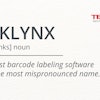
As climate events become more frequent and volatile, supply chain leaders are increasingly forced to grapple with disruptions that can derail even the most meticulously planned operations. From hurricanes to unexpected floods and extreme heat, these environmental disturbances wreak havoc on shipping routes, distribution centers, and ultimately, customer satisfaction. That’s where AI-based scheduling platforms step in.
The high stakes of weather disruptions
Natural disasters and sudden weather changes can devastate supply chains. A single weather-related delay doesn’t just impact one shipment; it sets off a domino effect across the fleet. Trucks miss their scheduled stops, future deliveries are thrown off schedule, and product integrity is compromised. For refrigerated goods, this could mean spoilage. For retail items, it could result in fines or lost sales. Traditional manual scheduling methods buckle under this kind of pressure. Email confirmations sit idle in inboxes. Appointment details are trapped, delaying communication to carriers and drivers, and critical decision-making stalls.
Time is not just money; it’s product, reputation, and competitive edge. The difference between a smooth reroute and a supply chain disaster often comes down to minutes.
Why traditional scheduling falls short
Manual scheduling is riddled with inefficiencies. It relies on dispatchers to read emails, manually update transportation management systems (TMS), and follow up when there’s no reply. During a crisis, these delays compound. Teams often deprioritize scheduling to handle more urgent disruptions, leading to missed opportunities and lost appointment slots.
Even under normal conditions, on average, time to a point is around 36 hours just to confirm an appointment after a load appears in the TMS. This delay is the result of manual operations. Teams juggle dozens of priorities, and unless scheduling is automated, critical time is lost.
In addition, appointment scheduling often works on a "first-come, first-served" basis. Those who schedule first get the best slots; those who delay are left with whatever’s left, often suboptimal windows that negatively impact profitability and driver utilization.
AI scheduling: Speed, precision, and scalability
AI-powered scheduling platforms revolutionize this process by removing manual friction. The AI engine triggers appointment requests the moment a load enters the TMS, no human action required. It doesn’t matter if the appointment is requested via email, a web portal, or AI phone calls, the experience is unified.
Such AI-powered platforms craft and send emails, follow up autonomously if there’s no reply, interpret the responses using generative AI, and update the TMS instantly. As a result, trucking companies see a dramatic improvement in scheduling (and rescheduling) speed.
The implications are enormous: Real-time TMS updates enable immediate route optimization, reduce scheduling variance to as little as 10 minutes, and ensure that teams can secure prime appointment slots. The ability to optimize routes relies on confirmed appointments, and AI-powered scheduling platforms make this possible by removing the inbox as a bottleneck.
Rescheduling in real time, even at 2 a.m.
When disaster strikes, rescheduling is often needed on the fly. Traditionally, this means logging into portals, identifying the right contact, and sending emails manually, often in the middle of the night. Night dispatchers frequently lack access or knowledge of scheduling platforms, forcing delays until business hours resume.
With an automated scheduling tool, night teams can initiate rescheduling directly within the TMS, no guesswork, no login hurdles. The AI determines the appropriate channel, sends the request, and updates the system in real time. In many cases, reschedules are completed before the day team even arrives.
This level of automation balances workloads, eliminates unnecessary touchpoints (which average 2.8 per appointment), and ensures continuity through any crisis. Night dispatch becomes a strategic asset, not just a reactive pass-through.
Weather-proofing through predictive intelligence
By integrating with existing ETA data, automated scheduling platforms can identify at-risk shipments before a storm hits. It prompts proactive scheduling changes, reroutes freight to beat the weather, and reduces service failures.
This predictive capacity is particularly important in high-stakes verticals like food, retail, and pharmaceuticals, where spoilage, shelf timing, and compliance are non-negotiable. The cost of delay in these sectors is measured not just in dollars, but in customer trust and brand damage.
Operational and environmental impact
The benefits extend beyond operations. By securing optimal appointment windows quickly, such AI scheduling tools help reduce idling and congestion around facilities, especially in weather-impacted regions. This translates into fewer emissions and better fuel efficiency, contributing to a more sustainable supply chain.
Scheduling as a strategic advantage
Many companies don’t realize the financial weight of inefficient scheduling because there's no direct line item for it on the P&L. But seasoned logistics professionals understand that a great lane with bad appointments is a bad load. And when the weather compounds these challenges, the costs skyrocket.
AI-powered scheduling platforms turn scheduling from a reactive burden into a proactive, strategic lever. It ensures freight is where it needs to be, when it needs to be, even amid disruption. It gives teams control, clarity, and confidence at machine speed.




















